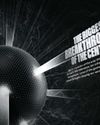
We've all seen the adverts. 'This one, simple trick will blitz the blubber around your belly'; "Turn your body into a furnace and burn off your spare tyre with this diet hack'; 'Get Adonis abs by doing this five-minute workout'. But exactly how sceptical of their claims should we be? What does science actually tell us about getting rid of belly fat?
Well, the first thing to say is that not all fat is bad. To maintain good health, it's critical that our bodies can store excess energy, and they do this using fat. Fat tissue is also structurally important in our bodies - it helps keep us warm through insulation and it cushions the palms of our hands, the soles of our feet and, yes, our bottoms. The fat just under our skin, known as subcutaneous fat and often found on the hips and buttocks, can be healthy. Ultimately, without any fat storage in our bodies, we would be unwell and very uncomfortable.
That said, losing excess belly fat is a good idea. A sizeable gut could indicate a person is carrying a large amount of 'deep' abdominal fat, known as visceral fat, which can surround our organs and make us more likely to be ill. Visceral fat is more insulin-resistant than other fat tissue meaning it's worse at absorbing blood glucose. It's also more linked to inflammation and is more likely to release fats into the blood in response to stress hormones, increasing a person's risk of metabolic disease.
There are various ways to see if your levels of visceral fat are high, but the easiest is to check your waist-hip ratio.
Using a tape measure, measure the widest part of your hips and the narrowest part of your waist, then divide the your waist measurement by your hip measurement. According to the World Health Organization, the healthy ratios for men and women are below 1 and 0.85 respectively (the difference is due to women having broader hips).
READY, AIM...
この記事は BBC Science Focus の March 2024 版に掲載されています。
7 日間の Magzter GOLD 無料トライアルを開始して、何千もの厳選されたプレミアム ストーリー、9,000 以上の雑誌や新聞にアクセスしてください。
すでに購読者です ? サインイン
この記事は BBC Science Focus の March 2024 版に掲載されています。
7 日間の Magzter GOLD 無料トライアルを開始して、何千もの厳選されたプレミアム ストーリー、9,000 以上の雑誌や新聞にアクセスしてください。
すでに購読者です? サインイン

THE WORST IDEAS OF THE 21ST CENTURY
NOT ALL IDEAS CAN BE HITS. ALONGSIDE GROUND-BREAKING INNOVATIONS, 21ST-CENTURY SCIENTISTS HAVE HELMED THEIR SHARE OF WILD TECH FLOPS, DUBIOUS THEORIES AND OVERHYPED BREAKTHROUGHS. HERE ARE THE BIGGEST TO FORGET

10 IDEAS THAT WILL SHAPE YOUR NEXT 25 YEARS
Predicting the future is considered a fool's game. But it's one many of us like to play.

THE BIGGEST BREAKTHROUGHS OF THE CENTURY
We're a quarter of the way into the new century. To mark this milestone, we asked the UK's top minds to highlight some of the game-changing scientific breakthroughs shaping our world since the year 2000

DO THE SCIENCE COGNITIVE SHUFFLE
Trouble sleeping? A lot on your mind? Use this trick and sedate your synapses

WHAT DETERMINES HOW MANY ABS I CAN GET?
Assuming you're a human being, you have exactly the same number of abs as everybody else: two.

HOW CAN I IDENTIFY MY PSYCHOLOGICAL BLIND SPOT?
In the 1950s two American psychologists, Joseph Luft and Harrington Ingham, proposed a way of thinking about psychological blind spots - things you don't know about yourself - that they called the 'Johari Window' (the term is a combination of their first names).

How can I change my personality?
Want to become more confident, extroverted or assertive? Science shows that with a few simple changes, you can unlock your best self

Could your cosmetics be harming your health?
Cosmetic companies are phasing out microplastics and so-called 'forever chemicals' to help protect consumers.

extraterrestrial US Congress is talking about activity again. Is the truth really out there?
Despite several testimonies, the question remains frustratingly unanswered

Map of 100 million human body cells revealed
Over three dozen new studies mark significant milestone towards complete Human Cell Atlas